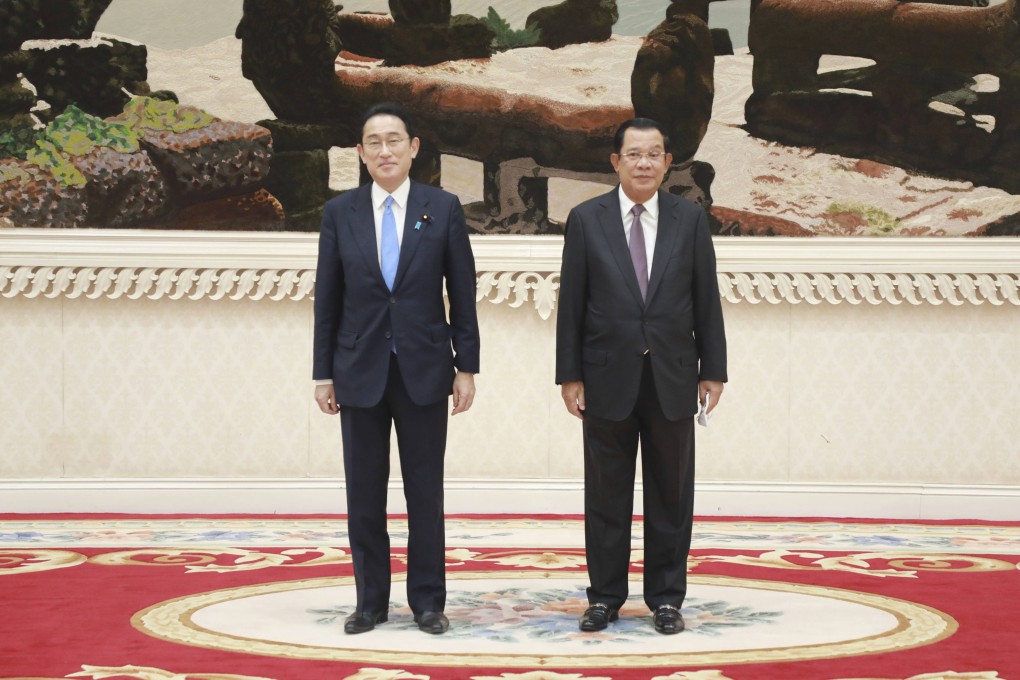Japan’s PM visits Cambodia to deepen relations with China’s key partner in Asean
- Japanese Prime Minister Fumio Kishida met Cambodian counterpart, Hun Sen to discuss topics such as trade and infrastructure, as well as Myanmar and Ukraine
- After China, Japan is Cambodia’s largest donor and has funded major projects such as the construction of bridges and upgrading clean water and sewage systems

Japanese Prime Minister Fumio Kishida was in Cambodia for talks with his counterpart, Hun Sen, on Sunday to deepen relations with one of the Southeast Asia’s closest partners of both China and Japan.
The two leaders were discussing cooperation covering trade and investment, education, infrastructure, defence and security, and the post-pandemic recovery, Cambodian officials said.
After China, Japan is Cambodia’s largest donor and has funded the construction of bridges across the Mekong River, main roads linking Phnom Penh with provinces, the country’s principal Sihanoukville port as well as upgrading clean water and sewage systems in the capital.
But Japan and the US also share concerns over China’s growing military assertiveness in the region. In Cambodia, Washington has been recently focused on China’s construction of new facilities at Ream Naval Base and the potential for its military to have future basing rights there.

Kishida’s visit came three days after the departure of two Japanese naval ships from Ream Naval Base, where the Japan Maritime Self-Defence Force conducted demining training with Cambodian counterparts.